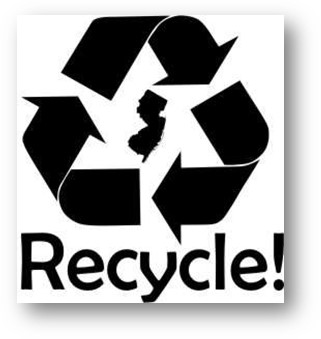By Huck Fairman
As many residents remember, Princeton had a recycling program for food and organic waste collected by private companies, which then sold that waste to concerns (including golf courses) that needed fertilizing organics. The program seemed another step forward in dealing with our vast amounts of waste – at least organic waste.
But the collecting companies could not always find purchasers for the collected waste, and so they could not continue their service.
Now Nora Goldstein, writing for BIOCYCLE, the organics recycling authority, has written an encouraging report on a company that is collecting and processing food and organic waste and selling to customers who can use it.
The company is Ag Choice, located in Andover. It is the state’s only
“commercial scale composting facility.” Founded in 2005 by Jay and Jill Fischer, the company uses its 12 acres to accept “source-separated food waste streams,” and to compost screen, blend and load trucks with outbound products.
Prior to this innovation, Jay’s family sawmill, Nora Goldstein explains, “sold sawdust to small horse farms in the area, and backhauled manure and bedding for compost. At the time, Ag Choice also was collecting pre-consumer organics from several area grocery stores.”
Important to the company’s viability was its arrangement to operate under a New Jersey Department of Environmental Protection (DEP) Research, Development and Demonstration (RD&D) assignment. This was much less costly than having to obtain a Class C solid waste permit, which requires that food waste composting be done in an enclosed building on a concrete floor.
But the company had to show that “it could compost food scraps, manure and yard trimmings in outdoor windrows [raked hay] on a compacted soil pad.” The facility was initially “limited to processing only pre-consumer food waste” within a limited area.
The company has continued to research and evolve to the point where now they have “filed for a third RD&D permit” to “conduct research on animal mortality composting in open air windrows.” Jay Fischer explained that they will be “processing deer, bear culls and butcher waste that can’t be sent to a renderer.”
The Fischers have also “procurred” a new, large tractor-like “turner” to mix the waste, and they have a full-time scientist who monitors the compost and keeps records for the DEP.
Conducting the operations are 20 employees, including those driving trucks to collect the organics.
Additionally, “local municipalities bring in yard trimmings, while the company works with “local grocery stores, distribution centers, food manufacturers, and industrial processors,” as well as with “small-scale residential food scraps collection” companies.
However, they do not serve restaurants because of the risk of contamination.
The cost of recycling permits (specifically the Class C permit) remains a problem as it is beyond what the Fischers calculate is a viable level. And “the one-size-fits all” permit does not reflect either the current science or advances in processing. But they are optimistic that perhaps in another 15 years the legislative process will adjust and provide what is needed.
Recently, the Fischers were contacted by Nestle’s Nespresso coffee capsules division looking for a way to recycle their aluminum capsules.
Thus the idea of recycling organics, or even aluminum, is gaining wider acceptance. And all of this is none too soon, as our environments, from oceans to forests, are threatened by human waste.

